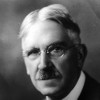“ Youth is the smile of the future in the presence of an unknown quantity, which is itself. ”
Victor Hugo, Les Misérables (1862). copy citation
| Author | Victor Hugo |
|---|---|
| Source | Les Misérables |
| Topic | youth future |
| Date | 1862 |
| Language | English |
| Reference | |
| Note | Translation by Isabel F. Hapgood in 1887 |
| Weblink | http://www.gutenberg.org/files/135/135-h/135-h.htm |
Context
“Now, this cruel teasing from on high had been gone through with. Marius was about to arrive, and he would bring good news. Youth is made thus; it quickly dries its eyes; it finds sorrow useless and does not accept it. Youth is the smile of the future in the presence of an unknown quantity, which is itself. It is natural to it to be happy. It seems as though its respiration were made of hope.
Moreover, Cosette could not remember what Marius had said to her on the subject of this absence which was to last only one day, and what explanation of it he had given her.”
source



